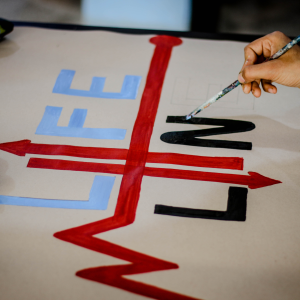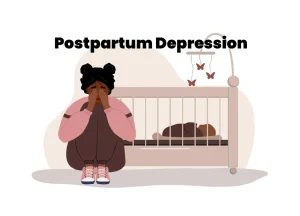It was a hot Tuesday at Ketu when I learned the true cost of isolation. For months, I had been juggling freelance deadlines, family expectations, and Lagos’ relentless pace. I survived on sporadic meals, slept four hours a night, and wore productivity like a badge of honour until my body rebelled.
As I regained consciousness on the Buka’s dusty floor, I found myself surrounded not by strangers but by a community I’d overlooked. Mama Nneka, the food vendor whose Buka I’d frequented for years, cradled my head while asking if I was strong enough to stand up. After what seemed like ages, I stood up to occupy the plastic chair provided.
“Why do you young ones think you must carry so much stress without resting or even asking for support?” she asked rhetorically while staring at me. I looked at her without responding, but the question lingered in my mind… begging for an answer that I did not have.
The Silent Struggle
Like many people, I had fallen into the trap of believing that self-reliance equalled strength. I prided myself on my ability to manage multiple responsibilities without needing help. However, I failed to realize that this mindset was slowly eating away at my well-being. I had replaced meaningful interactions with transactional conversations, distanced myself from friends because I never blew to the level I wanted, and ignored my body’s warnings.
That day at Ketu, however, forced me to pause. As I sat recovering, people I barely knew checked on me. The snack seller offered me water, and the tailor across the street told me to rest before moving again. These small acts of kindness unravelled something in me. For the first time in months, I felt seen, not as a freelancer meeting deadlines or a son meeting expectations, but as a human being in need of care.
Rediscovering my community
In the days that followed, I began to notice how deeply interwoven we all are. I started greeting my neighbours again, asking how they were doing beyond the usual surface-level conversations. I accepted invitations to small hangouts with my gees instead of making excuses. I even found myself lingering longer at Mama Nneka’s Buka, not just for the food but for the warmth of shared laughter and stories.
The shift was subtle but profound. I began to feel lighter as if an invisible burden had been lifted. Science backs this up, studies have shown that strong social connections are key to mental resilience. The feeling of belonging and being supported can reduce stress, anxiety, and even physical health problems. My own experience was proof of this.
Perhaps the most difficult lesson in this journey was learning to ask for help. It was uncomfortable at first; after all, I had spent so long believing that seeking support was a sign of weakness. But each time I reached out, I realized that people were more willing to help than I had imagined. Friends responded with kindness, colleagues understood when I set boundaries, and my family still had people who, rather than judging, embraced my honesty.
Community bonds are not just about grand gestures; they are about the small, everyday interactions that remind us we are not alone. A shared meal, a knowing smile, an offer to carry a heavy load, these things matter. They remind us that we must not navigate life’s challenges in isolation.
Final thoughts about my story
Collapsing at Ketu was a wake-up call for me. It reminded me that strength is not about how much you can carry alone but how willing you are to let others walk alongside you. In a world that’s constantly glorifying individual success, we must remember that true well-being thrives in connection.
If you’re reading this and feeling overwhelmed, I urge you to reach out. Say yes to community. Let people in, because sometimes, the lifeline we need is already around us, waiting to be embraced.



